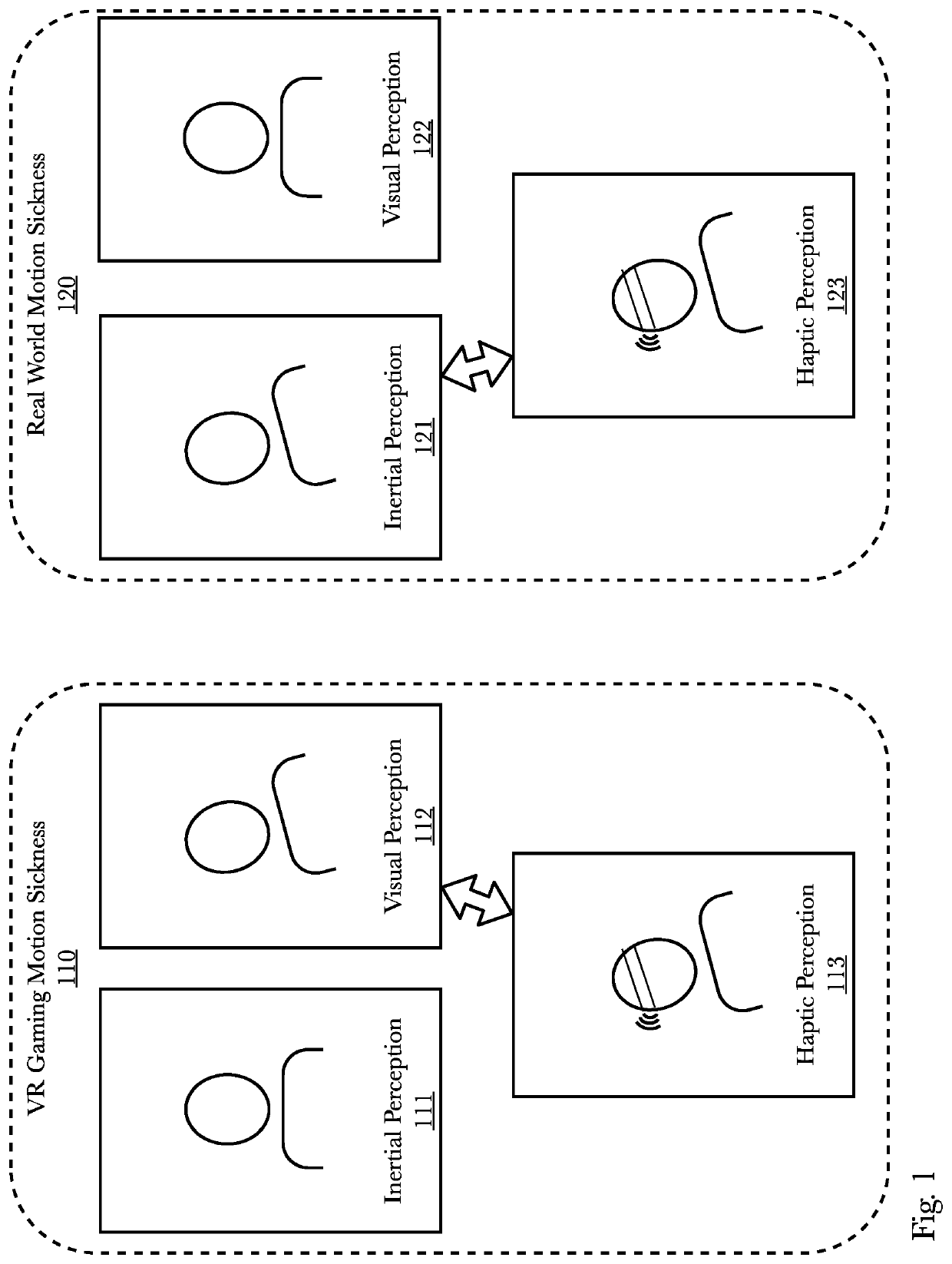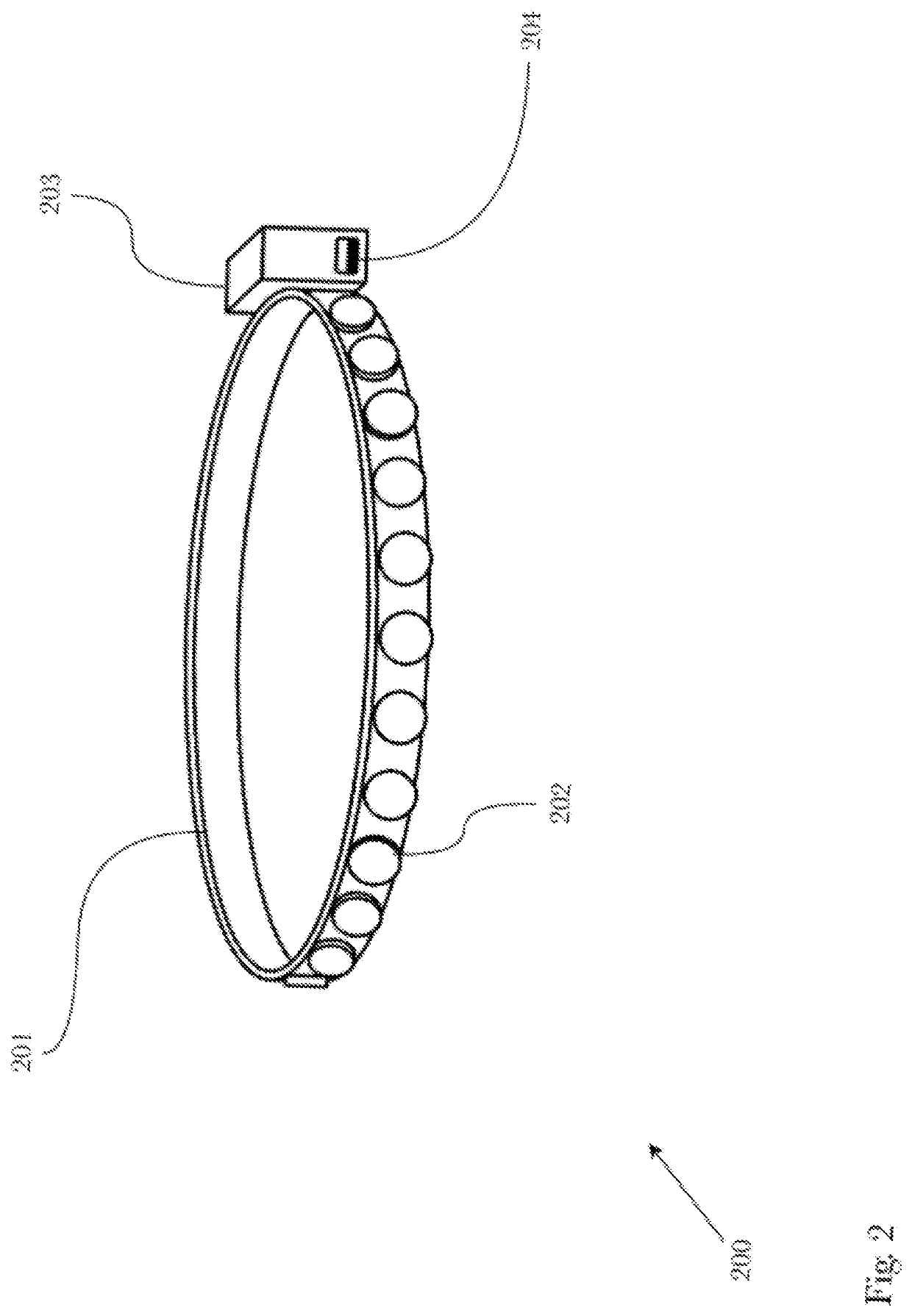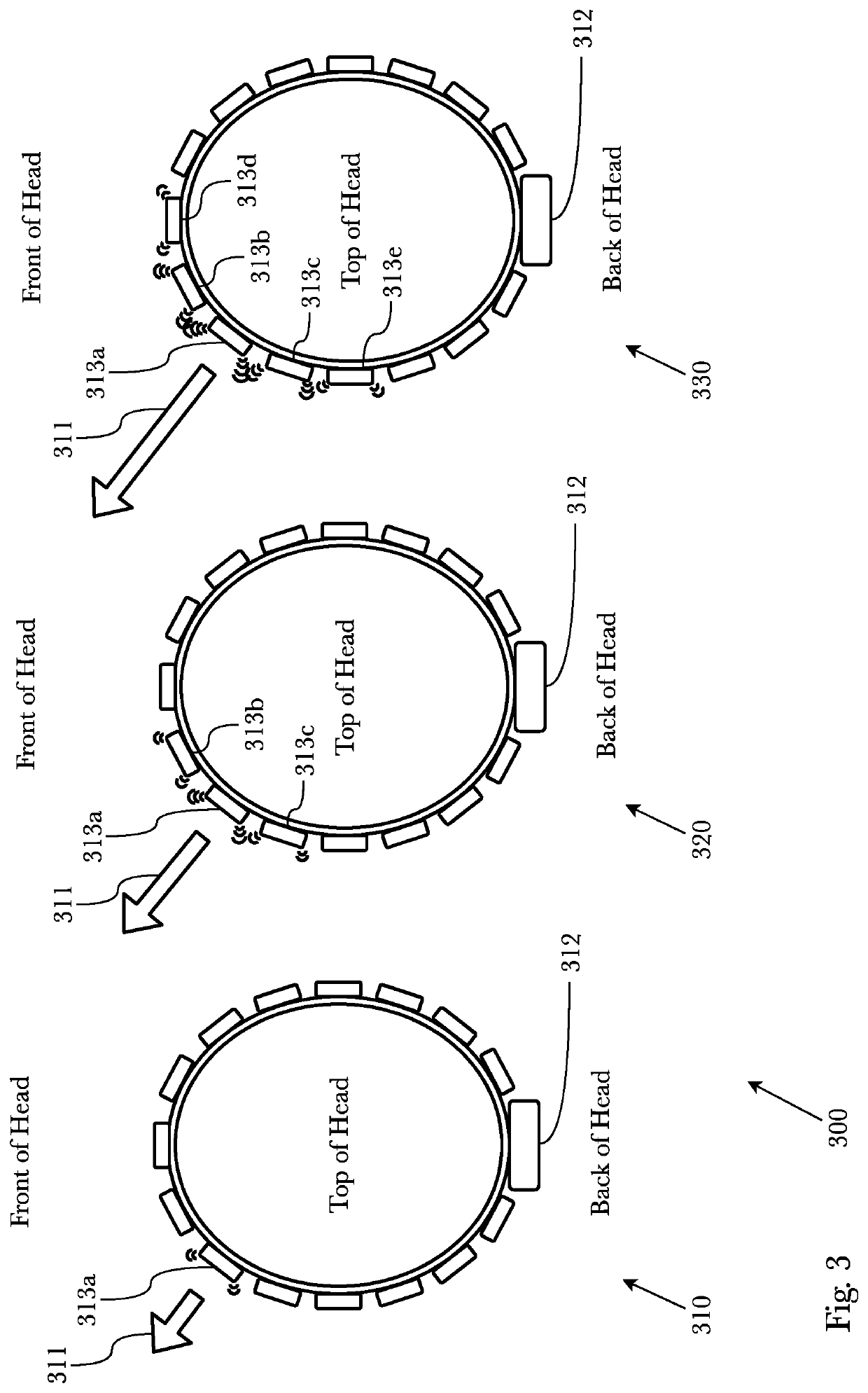Motion sickness reduction, directional indication, and neural rehabilitation device
a neural rehabilitation and motion sickness technology, applied in the field of haptic feedback and stimulation, can solve the problems of significant problems, unsatisfactory existing methods for reducing motion sickness, and motion sickness, and achieve the effects of reducing perceived conflict, reducing user's motion sickness, and reducing motion sickness
- Summary
- Abstract
- Description
- Claims
- Application Information
AI Technical Summary
Benefits of technology
Problems solved by technology
Method used
Image
Examples
exemplary embodiment 300
[0068]FIG. 3 is a diagram illustrating the operation of an exemplary embodiment 300 to indicate a direction and magnitude of linear motion and / or acceleration. The operation of this exemplary embodiment 300 will be the same whether the device is used to provide tactile indication of real movement of the user (such as movement of a ship) or artificial visual movement of the user (such as in VR gaming). As shown in 310, as a user of the device starts to “move” (again, either actually or virtually) linearly in a given direction 311, the controller 312 activates the transducer closest in direction to the direction of movement 313a at a low level, providing the user with a tactile indication that the user is moving in the direction of movement 311 at a slow speed. As shown in 320, as the user gains speed in the same direction of movement 311, the controller 312 activates the transducer closest in direction to the direction of movement 313a with greater intensity, while simultaneously act...
exemplary embodiment 400
[0069]FIG. 4 is a diagram illustrating the operation of an exemplary embodiment 400 to indicate a direction and speed of rotation. The operation of this exemplary embodiment 400 will be the same whether the device is used to provide tactile indication of real movement of the user (such as turning of a car) or artificial visual movement of the user (such as turning around in VR gaming). As shown in 410, as a user of the device starts to “rotate” (again, either actually or virtually) leftward 411, the controller 412 activates a transducers to the front of the head and off to the left side 413a at a low intensity, providing the user with a tactile indication that the user is rotating leftward 411 at a slow speed. As shown in 420, as the user gains speed in the leftward rotation 411, the controller 412 activates additional transducers on the left side further from the front of the head 413b, 413c with the transducers gaining in intensity in the direction of rotation, while simultaneousl...
exemplary embodiment 500
[0070]FIG. 5 is a diagram illustrating the operation of an exemplary embodiment 500 to indicate a direction and distance of objects and objectives. In this embodiment, signals may be sent to a controller 501, which operates certain transducers to indicate direction, distance, and even the type of object 504 or objective 502. For example, assume that the user is traveling toward an objective 502, in this case, a set of mountains in the distance. Signals may be sent to the controller 501 to indicate the direction and distance of the objective 502, and the controller 501 operates a transducer closest to the direction of the objective 503 in a pulsing manner. The location of the transducer 503 on the head indicates the direction of the objective 502, and the frequency and intensity of pulsing of the transducer 503 indicates the distance the user is away from the objective 502. For example, more frequent and more intense pulses might indicate that the user is getting closer to the object...
PUM
 Login to View More
Login to View More Abstract
Description
Claims
Application Information
 Login to View More
Login to View More - R&D
- Intellectual Property
- Life Sciences
- Materials
- Tech Scout
- Unparalleled Data Quality
- Higher Quality Content
- 60% Fewer Hallucinations
Browse by: Latest US Patents, China's latest patents, Technical Efficacy Thesaurus, Application Domain, Technology Topic, Popular Technical Reports.
© 2025 PatSnap. All rights reserved.Legal|Privacy policy|Modern Slavery Act Transparency Statement|Sitemap|About US| Contact US: help@patsnap.com



